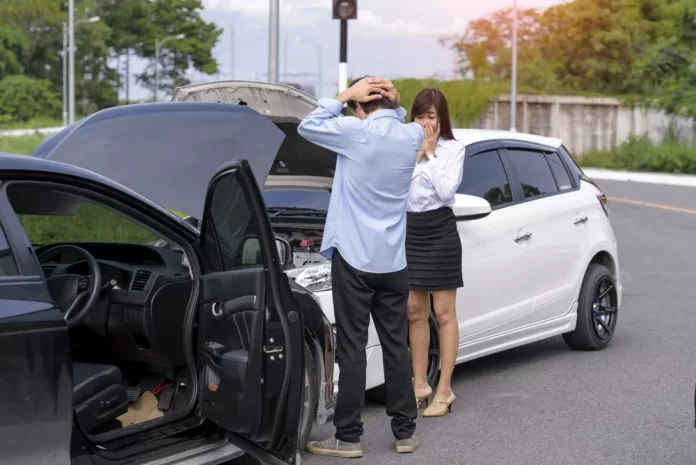Car accidents are stressful, but dealing with dishonesty from the other driver can make the situation even more complicated. Whether they’re completely fabricating a story or omitting certain key details, you can’t afford to have the other person mislead the insurance companies and leave you shouldering the burden of responsibility.
- Stay Calm and Safe
The first step when you suspect the other driver is lying about a car accident is to remain calm and ensure the safety of all parties involved.
- Move your vehicles to a safe location, if possible, to prevent further accidents or disruptions.
- Turn on hazard lights and call the local authorities to report the accident.
- Stay composed. This not only ensures the safety of everyone involved but also sets a positive tone for the upcoming steps in the process.
Document the Scene
One of the most critical steps after a car accident is to document the scene thoroughly. This becomes even more crucial when you suspect the other driver might be less than truthful. Use your smartphone to take clear photos of the damage to both vehicles, the accident scene, and any road signs or traffic signals. Additionally, record any visible injuries, no matter how minor, as they can serve as essential evidence later.
- Gather Witness Statements
If there are any witnesses to the accident, ask for their contact information and, if they are willing, request statements. These statements can be invaluable in corroborating your version of events if the other driver is being dishonest. Witnesses who provide an impartial account of the accident can significantly strengthen your case when dealing with insurance companies or potential legal action.
- Consult an Attorney
If you have concerns about the other driver’s honesty and believe you may need legal assistance, it’s a good idea to consult with an attorney who specializes in personal injury or car accident cases. They can provide expert guidance, review your case, and help you determine the best course of action. An experienced attorney can also assist in dealing with insurance companies and navigating the legal process.
When hiring an attorney, look for someone who has a background in litigating car accident cases (as it’s possible that your case might actually go to court). You need someone who understands how to go to “bat” for you with insurance companies.
- Contact Your Insurance Company
Regardless of the other driver’s honesty, it’s crucial to contact your insurance company promptly to report the accident. Provide them with the facts as you know them, including your suspicions about the other driver’s dishonesty. Your insurer can guide you through the claims process and take steps to protect your interests.
- Gather All Available Evidence
In addition to photographs and witness statements, gather any other evidence related to the accident. This may consist of accident reports, medical records, and any correspondence with the other driver. (Every piece of evidence can help build a strong case, especially when dealing with a dishonest party.)
- Be Careful with Statements
While it’s essential to document the accident, be cautious about the statements you make to the other driver and their insurance company. Avoid admitting fault or speculating about the accident’s cause. Stick to the facts and provide information to the authorities, your insurance company, and your attorney. Remember that anything you say could be used against you, especially when dealing with dishonesty from the other party.
- Keep Detailed Records
Maintain a detailed record of all interactions related to the accident, including phone calls, emails, and in-person conversations. This documentation can be useful for tracking the progress of your case and ensuring you have an accurate account of events. Be sure to record dates, times, and the names of people you speak with, including insurance adjusters and attorneys.
If you sustained injuries in the accident, it’s crucial to follow through with medical treatment and therapy as recommended by your healthcare provider. Not only does this ensure your health and well-being, but it also demonstrates your commitment to addressing the consequences of the accident, which can be a vital factor in establishing liability and damages.
Trust the Process
Dealing with a dishonest driver and navigating the legal and insurance processes can be time-consuming and frustrating. However, it’s essential to remain patient and persistent. Your dedication to seeking a fair resolution can make a significant difference in the outcome of your case.
















